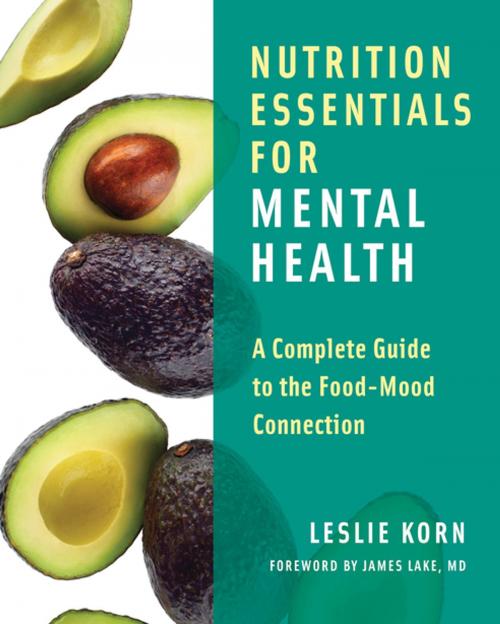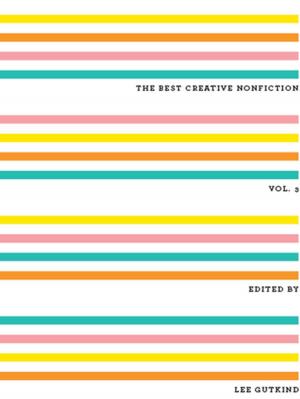Nutrition Essentials for Mental Health: A Complete Guide to the Food-Mood Connection
Nonfiction, Health & Well Being, Psychology, Psychotherapy, Health, Nutrition & Diet, Nutrition| Author: | Leslie Korn, PhD | ISBN: | 9780393709957 |
| Publisher: | W. W. Norton & Company | Publication: | January 11, 2016 |
| Imprint: | W. W. Norton & Company | Language: | English |
| Author: | Leslie Korn, PhD |
| ISBN: | 9780393709957 |
| Publisher: | W. W. Norton & Company |
| Publication: | January 11, 2016 |
| Imprint: | W. W. Norton & Company |
| Language: | English |
Exploring the connection between nutrition and mental wellness so therapists can provide more effective, integrated treatment.
Diet is an essential component of a client’s clinical profile. Few therapists, however, have any nutritional training, and many don’t know where to begin. In Nutrition Essentials for Mental Health, Leslie Korn provides clinicians with a practical guide to the complex relationship between what we eat and the way we think, feel, and interact with the world.
Where there is mental illness there is frequently a history of digestive and nutritional problems. Digestive problems in turn exacerbate mental distress, all of which can be improved by nutritional changes. It’s not unusual for a deficit or excess of certain nutrients to disguise itself as a mood disorder. Indeed, nutritional deficiencies factor into most mental illness—from anxiety and depression to schizophrenia and PTSD—and dietary changes can work alongside or even replace medications to alleviate symptoms and support mental wellness.
Nutrition Essentials for Mental Health offers the mental health clinician the principles and practices necessary to provide clients with nutritional counseling to improve mood and mental health. Integrating clinical evidence with the author’s extensive clinical experience, it takes clinicians step-by-step through
the essentials for integrating nutritional therapies into mental health treatment. Throughout, brief clinical vignettes illustrate commonly encountered obstacles and how to overcome them.
Readers will learn:
• Why nutrition matters in mental health
• The role of various nutrients in nourishing both the brain and the gut, the “second brain”
• Typical nutritional culprits that underlie or exacerbate specific mental disorders
• Assessment techniques for evaluating a client’s unique nutritional needs, and counseling methods for the challenging but rewarding process of nutritional change.
• Leading-edge protocols for the use of various macro- and micronutrients, vitamins, and supplements to improve mental health
• Considerations for food allergies, sensitivities, and other special diets
• The effects of foods and nutrients on DSM-5 categories of illness, and alternatives to pharmaceuticals for treatment
• Comprehensive, stage-based approaches to coaching clients about dietary plans, nutritional supplements, and other resources
• Ideas for practical, affordable, and individualized diets, along with optimal cooking methods and recipes
• Nutritional strategies to help with withdrawal from drugs, alcohol and pharmaceuticals
And much more. With this resource in hand, clinicians can enhance the efficacy of all their methods and be prepared to support clients’ mental health with more effective, integrated treatment.
Exploring the connection between nutrition and mental wellness so therapists can provide more effective, integrated treatment.
Diet is an essential component of a client’s clinical profile. Few therapists, however, have any nutritional training, and many don’t know where to begin. In Nutrition Essentials for Mental Health, Leslie Korn provides clinicians with a practical guide to the complex relationship between what we eat and the way we think, feel, and interact with the world.
Where there is mental illness there is frequently a history of digestive and nutritional problems. Digestive problems in turn exacerbate mental distress, all of which can be improved by nutritional changes. It’s not unusual for a deficit or excess of certain nutrients to disguise itself as a mood disorder. Indeed, nutritional deficiencies factor into most mental illness—from anxiety and depression to schizophrenia and PTSD—and dietary changes can work alongside or even replace medications to alleviate symptoms and support mental wellness.
Nutrition Essentials for Mental Health offers the mental health clinician the principles and practices necessary to provide clients with nutritional counseling to improve mood and mental health. Integrating clinical evidence with the author’s extensive clinical experience, it takes clinicians step-by-step through
the essentials for integrating nutritional therapies into mental health treatment. Throughout, brief clinical vignettes illustrate commonly encountered obstacles and how to overcome them.
Readers will learn:
• Why nutrition matters in mental health
• The role of various nutrients in nourishing both the brain and the gut, the “second brain”
• Typical nutritional culprits that underlie or exacerbate specific mental disorders
• Assessment techniques for evaluating a client’s unique nutritional needs, and counseling methods for the challenging but rewarding process of nutritional change.
• Leading-edge protocols for the use of various macro- and micronutrients, vitamins, and supplements to improve mental health
• Considerations for food allergies, sensitivities, and other special diets
• The effects of foods and nutrients on DSM-5 categories of illness, and alternatives to pharmaceuticals for treatment
• Comprehensive, stage-based approaches to coaching clients about dietary plans, nutritional supplements, and other resources
• Ideas for practical, affordable, and individualized diets, along with optimal cooking methods and recipes
• Nutritional strategies to help with withdrawal from drugs, alcohol and pharmaceuticals
And much more. With this resource in hand, clinicians can enhance the efficacy of all their methods and be prepared to support clients’ mental health with more effective, integrated treatment.















